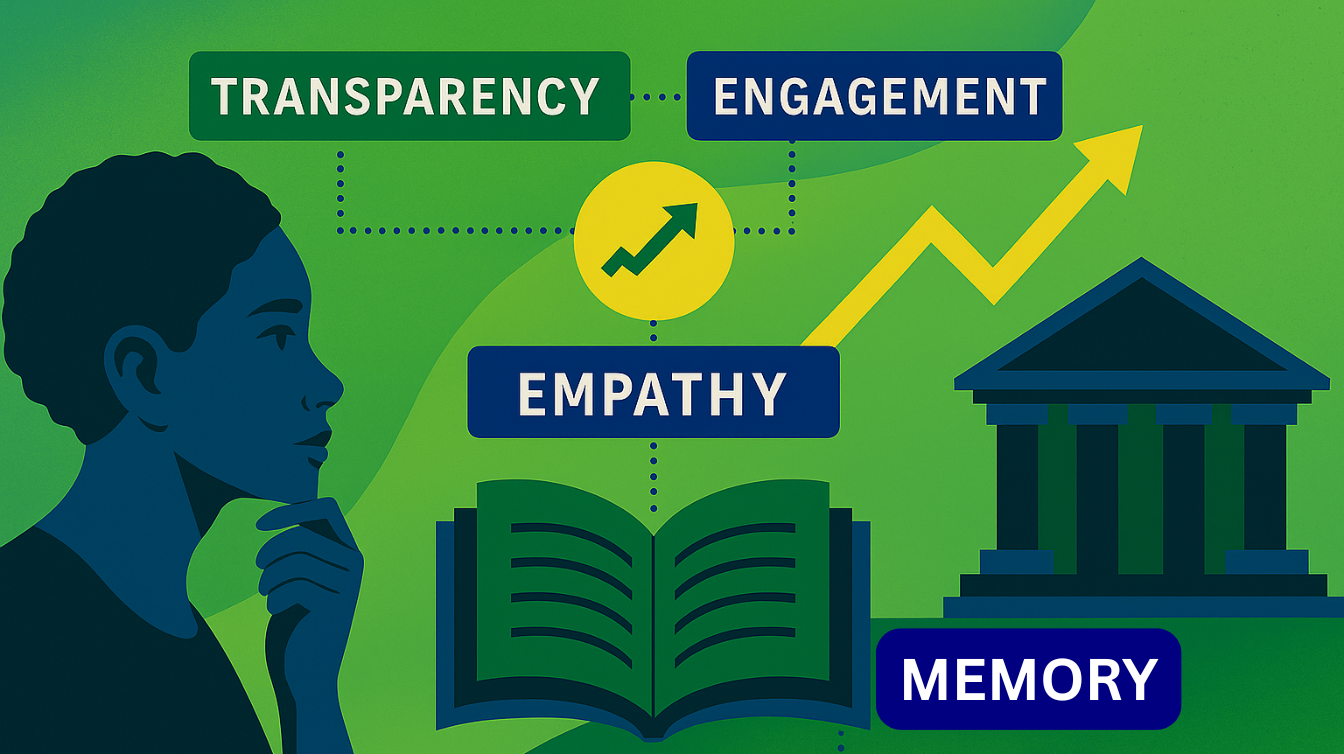
Why Institutions Still Need Human Storytellers in High-Context Work
To resonate with your most thoughtful stakeholders, work like adaptive narrative strategy requires the human storytelling expertise generative AI can't offer.
A recent MIT study found when it comes to complex, high-context work, human expertise remains irreplaceable.
Organizations that thrive in this GenAI-driven environment will not be those that replace people with algorithms and raw GAI content, but those that re-center GenAI-literate human professionals and protect brand trust by keeping people in the lead.
This isn’t nostalgia for pre-tech days. It’s what research across communications, leadership, and institutional theory confirms: institutions rise or fall on their ability to convey trust, meaning, and legitimacy through human-led narratives.
Adaptive Leadership Requires Adaptive Storytelling
A 2024 study on corporate communication during the pandemic found that adaptive leadership built on empathy, transparency, and flexibility is the strongest predictor of organizational trust. No algorithm can replicate that trust-building function.
My own work on adaptive communications has shown that leaders who treat storytelling as iterative—responsive to context, community input, and shifting conditions—gain resilience and credibility even in turbulent times. This mirrors what scholars call sensemaking: helping audiences interpret uncertainty through stories grounded in real human experience.
Narrative Is Institutional Memory
Institutions don’t only keep records. They keep stories and those stories inform their narratives.
Research on New Zealand’s justice sector shows how narrative choice itself shapes institutional memory. That is what stories are told, which metaphors stick, and which histories are forgotten. Memory isn’t static; it’s dynamic, filtered through narrative, many times driven by similar cultural or societal experiences.
Culturally competent adaptive narrative strategy consultants who can bring their communities’ shared voices and memories into storytelling help institutions retain truths that otherwise get erased.
Institutions that rely only on static data—or on AI’s synthetic versions of “memory”—risk losing the nuance that actually sustains legitimacy.
Trust Is Built Through Transparency and Human Voice
Trust is fragile capital easily lost. A 2025 study in Humanities and Social Sciences Communications found that stakeholder trust is strongly tied to perceptions of transparency and clarity. In finance, in nonprofits, in any institution where legitimacy matters, content that feels generic or obfuscating erodes that trust.
AI can output “content.” But transparency requires judgment—naming tradeoffs, situating histories, revealing priorities—which is what only human storytellers can do.
Preciseness and candor are not optional extras. They are the connective tissue of institutional credibility.
The Future is Human Storytellers as Narrative Architects
Scholars of leadership and stakeholder engagement show that the institutions best prepared for environmental disruption are those that embed adaptive, participatory storytelling into their culture.
This means institutions must treat their human communicators not as content producers but as narrative architects—interpreters of memory, context, and values. Storytelling becomes the infrastructure through which trust and legitimacy flow.
A Framework for Leaders
Across my scholarship and practice, I see four interlocking principles emerging:
● Memory: Preserve and elevate stories that define institutional identity.
● Transparency: Tell the truth with clarity, even when it’s inconvenient.
● Empathy: Lead with human resonance that builds trust.
● Engagement: Create space for dialogue, not just broadcast.
Together, these form what I call an Adaptive Narrative Framework—a guide for leaders who understand that thriving institutions are not just technical or financial systems, but storytelling systems.
Closing Reflection
The future of institutional storytelling will not be determined by who adopts the latest tool fastest. It will be decided by who has the courage to center human storytellers as the architects of narrative infrastructure.
In the end, institutions are remembered—and trusted—not for the data they manage, but for the stories they tell.
Dahna Chandler is a doctoral researcher at the University of Southern California, where she examines how historical narratives shape access and legitimacy in U.S. finance. An award-winning business journalist with a master’s in corporate communications from Georgetown University, she brings over 25 years of expertise in long-form storytelling, institutional analysis, and narrative strategy. Through her work, she illustrates how stories construct systems, influence power, and shape public trust.
© 2025. The UpThink Narrative Initiative, a division of The Narrative Praxis Partnership, Inc. All rights reserved. This blog post may not be reproduced or reposted in whole or in part without express written permission of the author.

Post a comment